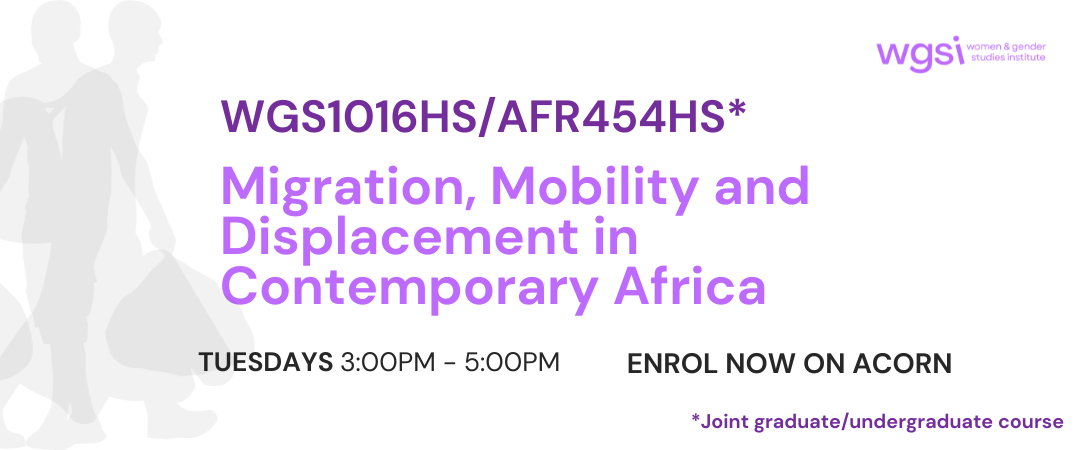Undergraduate Students Enrol on ACORN | Undergraduate and graduate students, email wgsi.comms@utoronto.ca for more information
Enrol in this joint undergraduate and graduate course being offered in the Winter 2024 semester; offered Tuesdays 3:00pm – 5:00pm

Course Description
Why do people move voluntarily and involuntarily? What are the causes and consequences of migration and displacement in Africa?
This course critically examines the multifaceted dimensions of migration, mobility, and displacement through (text, art, film and narratives) with a specific focus on communities and populations displaced by war, environmental destruction and disaster, economic failings, and the quest for economic opportunities or individual freedom. We will: 1) explore canonical and emergent interdisciplinary scholarships and their epistemic claims and debates, key theories and concepts on migration, mobility and displacement; 2) engage in current debates and public discourses on these intersecting themes, analytics, and phenomena; and 3) interrogate the morality of media representation and gaze, discursive practices on the ‘migrant’ and ‘refugee’ subject formation, the ‘catastrophic’ biopolitics and governmentality of migration, the instrumentality and contingencies of political (non) interventions/(in)action, humanitarianism, and the politics of rights, justice, ethics, and solidarity. You will have the opportunity to unpack your own positionality and trajectories to reflect on the differentiated categories and trajectories of migration and mobility, and normative assumptions on citizenship and the national subjects and formulate your own critique, alternative epistemology and relational ethos of knowledge making.
We will examine the narratives of migration through film, art, personal stories and oral histories. This seminar emphasizes research skills development and application; collaborative exchanges to foster critical engagement with these burning issues; information literacy and digital media using a wide array of technologies and delivery format including multimedia technologies, art- based methodologies, visual representation, and narratives; and transferable skills including policy briefs, writing memos and podcasting. Through the course assignments and your individual project, we endeavor to build a learning community in and outside the classroom and foster engaged practice and community engagement. We will invite guest speakers and attend events of relevance to the course.
